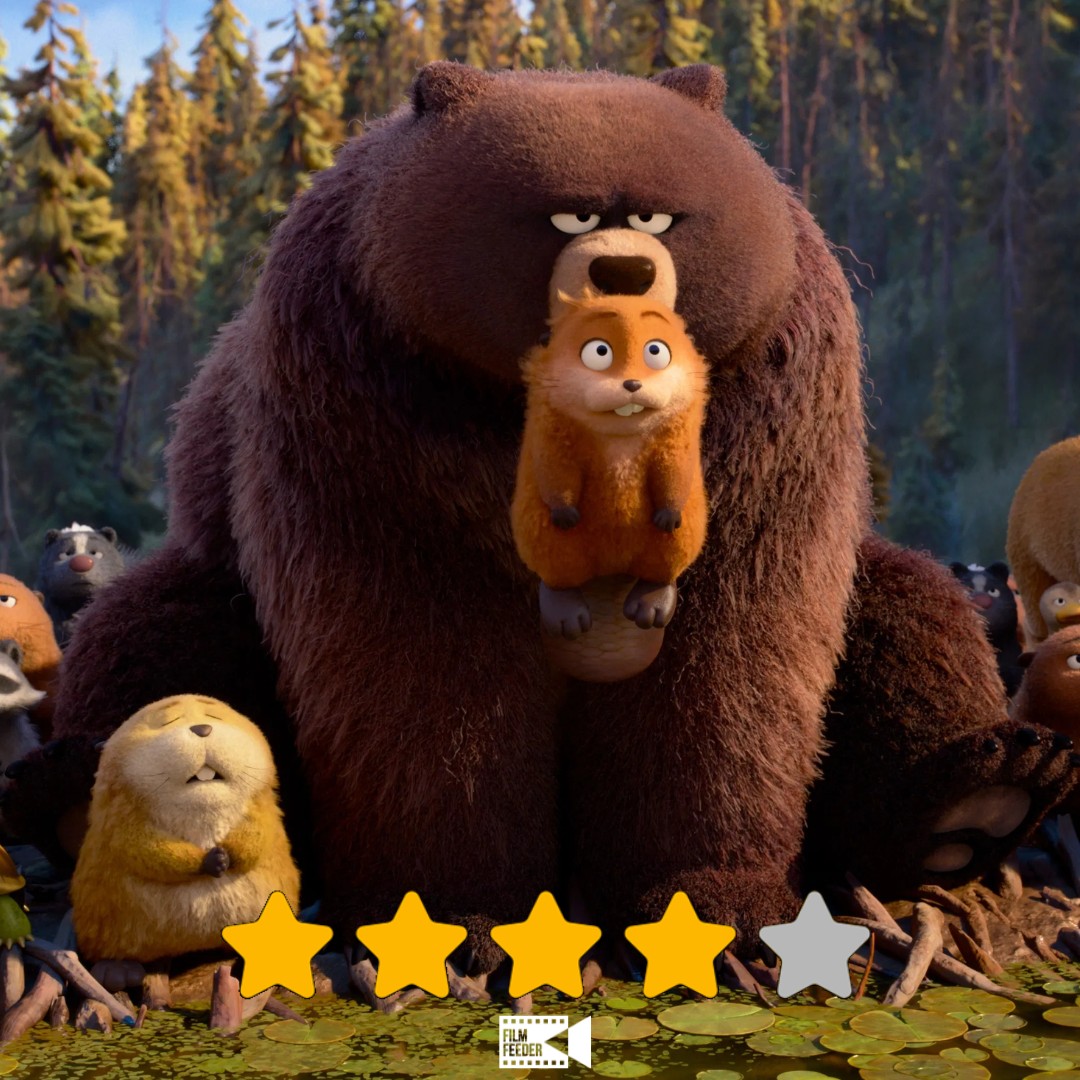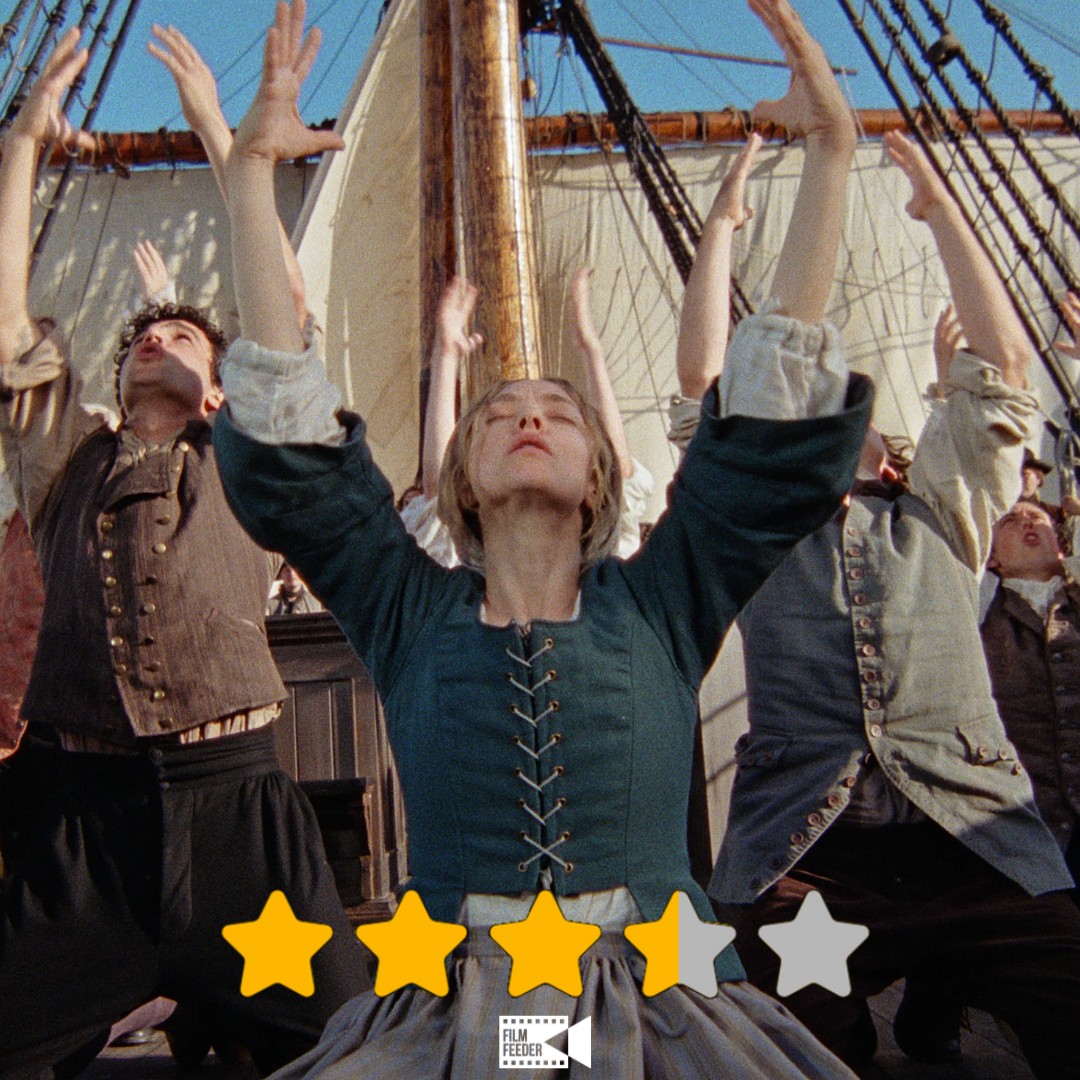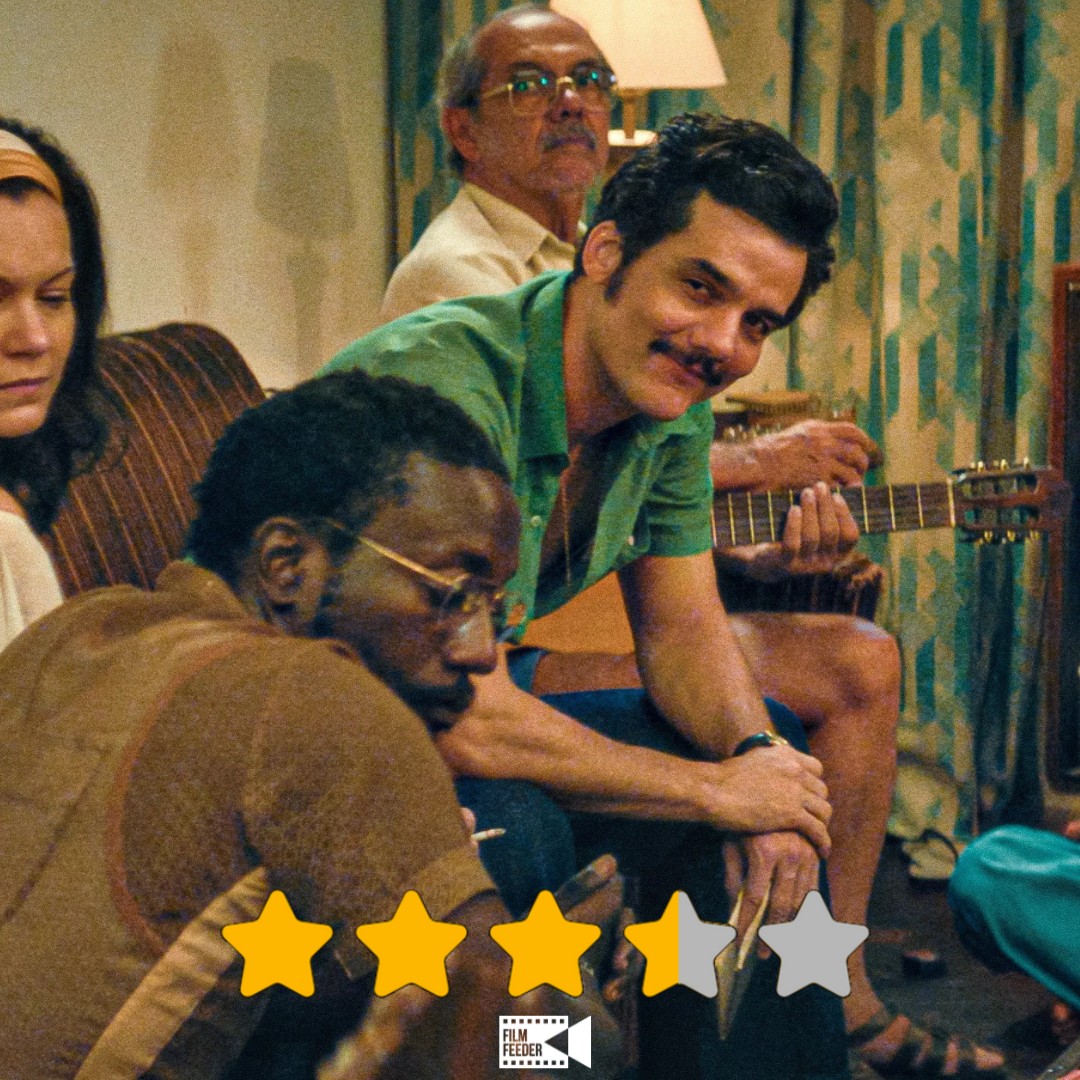
Dìdi (2024, dir. Sean Wang)
Certificate: 15
Running Time: 94 mins
UK Distributor: Universal Pictures
UK Release Date: 2 August 2024
WHO’S IN DÌDI?
Izaac Wang, Joan Chen, Shirley Chen, Chang Li Hua, Raul Dial, Aaron Chang, Mahaela Park, Chron Denk, Sunil Maurillo, Montay Boseman, Georgie August, Stephanie Hsu
WHO’S BEHIND THE CAMERA?
Sean Wang (director, writer, producer), Valerie Bush, Carlos López Estrada and Josh Peters (producers), Giosuè Greco (composer), Sam Davis (cinematographer), Arielle Zakowski (editor)
WHAT’S IT ABOUT?
A Taiwanese-American teenager (Wang) navigates personal relationships over the summer…
WHAT ARE MY THOUGHTS ON DÌDI?
With the recent trend of older filmmakers like Steven Spielberg and Kenneth Branagh delivering semi-autobiographical films about their childhoods having died down a little bit, it’s time for a newer generation of screen storytellers to relive their own coming-of-age journeys, even if it means revisiting eras that are still very fresh to most people.
For Sean Wang, the writer-director of Dìdi, that era is the awkwardly blissful summer of 2008. The summer when The Dark Knight broke box office records left and right. The summer when then-Senator Barack Obama was launching his presidential campaign. The summer when YouTube, still in its infancy, was nothing more than a far-reaching back catalogue of lo-fi prank videos, and Facebook was the go-to social media platform.
As you can tell, 2008 is easy to wax nostalgic over, especially for someone like me who also experienced the trials and tribulations of teenhood around the same time as the young main character in Dìdi. Remarkably, Wang resists much of that nostalgia in favour of a more self-critical ode to navigating adolescence in the era of AOL Instant Messenger, and the results are funny, honest, and quietly powerful.
Wang’s on-screen avatar is Chris (Izaac Wang), a 13-year-old Taiwanese-American who lives with his mother Chungsing (Joan Chen), his college-bound sister Vivian (Shirley Chen), and his elderly Nǎi Nai (Chang Li Hua, Wang’s actual grandmother who previously appeared in his Oscar-nominated short Nǎi Nai & Wài Pó). When we meet young Chris, he’s coasting through the summer before he begins high school, doing much of the usual stuff that you’d expect young teens to do, such as hanging out with his friends, pining after girls, having loud screaming matches with his older sister, and filming a bunch of pranks and skateboarding tricks for his YouTube channel. As the summer progresses, though, Chris begins branching out to newer experiences, including hanging out with an older group of skateboarders who become interested in him for his camera skills, and slowly realising the underplayed resilience of his mother, who’s holding the family together in her husband’s absence (it’s mentioned he’s in Taiwan for business, but beyond that very little is revealed about him or his stance within the family).
Predominantly, Dìdi – which comes from the Chinese word for “younger brother” – is the kind of hang-out teen movie that Richard Linklater launched his career making, and has recently been modernised in films like Eighth Grade and Mid90s. Like those movies, this one isn’t exactly bound by a straight narrative and is more often than not a series of vignettes that follow our young protagonist as he goes from one thing to another. Such vignettes in Dìdi range from wildly comical like an anecdote involving a dead squirrel, to boisterously violent such as a fight that ends with someone’s nipple being bitten, to borderline uncomfortable as dates with crushes end with casually racist remarks and inappropriate touching. Wang portrays all these experiences with a studious retrospective, refusing to neither condemn nor advocate for some of the rather questionable attitudes of the time but instead just show them for what they were, regardless of their un-PC nature nowadays.
The filmmaker is also cautious to not present his own story as some kind of noble, self-congratulatory tale about an infallible or misunderstood youth, as other semi-autobiographical films can sometimes be. On the contrary, Wang is not afraid to present his on-screen avatar Chris as an angsty and at times monstrous little brat, one who casually discards his close friends in favour of newer and more exciting ones, spews venomous insults to fellow teens that go well beyond mere trash talk, and often treats his family, especially his well-meaning mother whom Joan Chen brilliantly portrays with quiet passion, with absolute disdain. These behavioural patterns are certainly in line with how most young teens tend to act (as the throwaway visual gag in Inside Out 2 reminds us all, puberty is messy), though there is something deeply profound in how Wang shows the absolute volatility of his fictional self that doesn’t always make him easy to root for, which makes this particular coming-of-age story a bit more interesting than if he simply were just a goody-two-shoes the whole time.
By taking a more critical route in terms of the attitudes of the time and even his own younger self, Wang is able to present a more three-dimensional vision of adolescence that allows the viewer to judge what is essentially his life story (with a good few details changed for dramatic license) without evident bias toward one opinion or another. In a sense, Dìdi is the filmmaker’s way of showing the world that he, like so many of us are or were at that particular age, was capable of doing and saying some pretty rancid things without realising how that affected those around him. As an adult, he now has the capability to reflect on his past mistakes and put them into a contained and engaging narrative that doesn’t ask for forgiveness but instead for everyone to understand that, like so much else, it’s all part of that ever-awkward phase of growing up.
Not everyone will get the message, particularly if they’re too caught up in what a little turd this main character can be, but when it comes to giving a coming-of-age account that’s free of rose-tinted glasses, Dìdi is impressive in how compassionate and understanding it can be.
SO, TO SUM UP…
Dìdi is an impressively layered coming-of-age tale from writer-director Sean Wang, who refuses to indulge in the nostalgia of its era or to ease up on his on-screen avatar’s bratty behaviour in order to deliver a funny and ultimately endearing semi-autobiographical tale with quiet compassion.














0 Comments